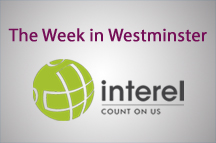 For those of us who live and breathe politics it can often feel like nothing is more important. But this week we had the most shocking of reminders that of course there is, as a devastating and horrific terrorist attack ripped through the heart of Manchester, killing 22, putting 64 in hospital, and leaving many more traumatised and devastated at the appalling event which took place at a pop concert at the Manchester Arena.
For those of us who live and breathe politics it can often feel like nothing is more important. But this week we had the most shocking of reminders that of course there is, as a devastating and horrific terrorist attack ripped through the heart of Manchester, killing 22, putting 64 in hospital, and leaving many more traumatised and devastated at the appalling event which took place at a pop concert at the Manchester Arena.
In the aftermath the political parties suspended election campaigning, rightly pausing to assess the security situation and to pay respects to the dead.
The Joint Terrorism Analysis Centre, an agency of MI5, met on Tuesday, and for the first time in a decade raised the UK’s threat level to ‘critical’ meaning an attack is expected ‘imminently’.
This led to a request from the Police for the deployment of almost 1,000 troops on the streets of the UK, to provide additional security at key locations, in a well-rehearsed plan called Operation Temperer.
Some have ignorantly suggested this was a political manoeuvre on the part of the Government. However, the JTAC is an independent body, and it would have been a dereliction of duty had the Government not responded positively to the Police request for additional resources in response to the increased threat level.
The parties resumed campaigning at the end of the week including the launch of the UKIP manifesto, which, given the severity of events elsewhere, went largely unnoticed except for their strange reasoning for a burka ban – Paul Nuttall is apparently concerned about the vitamin D levels of wearers (I’m not sure what he’ll propose for us peely wally Scots). The postponed launch of the SNP manifesto is now expected next Tuesday.
A significant narrowing of the polls has given Labour a boost, however Corbyn would be wise to think carefully about how to maintain this, as choosing to use this moment to push his own particular view of British foreign policy is unlikely to be what the public want to hear right now.
In contrast, Theresa May will today, Friday, attend a meeting of G7 leaders in Italy and is expected to call on them to do more to stop online extremism, putting pressure on internet and social media companies to stop their technology platforms being used by individuals and groups to promote hate and facilitate communications between extremists.
Our security services and politicians will have to answer some hard questions in due course. Having had so much success in recent years in detecting and foiling attacks in advance, the question of how the Manchester attacker was allowed to re-enter the country and slip through the net is hanging in the air, given that concerns about his behaviour had reportedly already been brought to the attention of the security services.
There will be a day for discussing resourcing and terrorism legislation, and debating the trade-off between our security and our freedoms.
But for now we should do two things, firstly we must keep the dead and the injured and their families in our thoughts and as the campaign moves on, remember that they do not have that luxury.
And secondly, as an an industry that does a lot of talking for a living, we should give credit to those who are involved in the doing; the police, the paramedics, the doctors and nurses and soldiers and security officers who deal with crisis and tragedy and trauma when the rest of us can’t bear to look.












